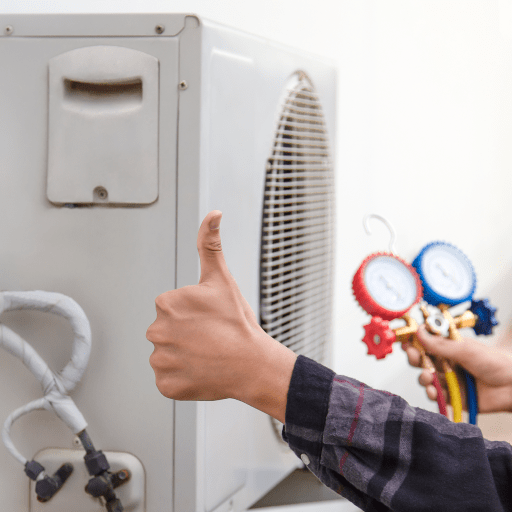
In Port St. Lucie, having a reliable air conditioning system is essential for staying cool during the hot months. When your AC unit starts acting up, it’s important to address any issues right away to avoid bigger problems down the road. But how can you tell when it’s time to call for repairs? Here are some common signs that your AC might need professional attention.
Warm Air Instead of Cool
One of the clearest indicators that something’s wrong with your AC is when it starts blowing warm or lukewarm air. If your unit is running but your home still feels warm, there could be a problem with the compressor, refrigerant levels, or airflow. Warm air could also mean that your AC isn’t cooling efficiently, which might be an issue with the thermostat or electrical components. When this happens, calling an HVAC technician to inspect the system is the best course of action.
Weak Airflow
If you notice weak or inconsistent airflow coming from your vents, it may point to a problem within the system. This could be caused by a clogged air filter, blocked ducts, or an issue with the blower motor. A dirty or obstructed air filter is often a quick fix, but more serious issues like a malfunctioning motor or ductwork problems require professional repair. Weak airflow not only affects your comfort but also causes your AC to work harder, potentially leading to higher energy bills.
Frequent Cycling On and Off
Air conditioners naturally cycle on and off as they maintain the temperature in your home, but if your unit is constantly cycling or shutting off before the room reaches the desired temperature, this could signal a problem. Frequent cycling might be due to a dirty filter, faulty thermostat, or an improperly sized AC unit. Short cycling not only strains your system but also prevents efficient cooling, leading to higher energy consumption. Having a technician evaluate your unit can prevent unnecessary wear and tear on the system.
Strange Noises
Air conditioners should operate quietly, with only a slight hum when they’re running. If you start hearing unusual sounds like grinding, squealing, or banging, it’s a sign that something is wrong. These noises can indicate issues with the motor, fan blades, or even loose parts inside the unit. Ignoring these sounds can result in bigger problems and more expensive repairs later on. Addressing the issue quickly helps avoid further damage to your system.
Unpleasant Odors
If your AC is giving off musty or burning smells, this is a clear sign of trouble. Musty odors often indicate mold or mildew in the ducts, which can impact indoor air quality and trigger allergies. Burning smells, on the other hand, might suggest an electrical problem or overheated components within the system. Either way, strange odors shouldn’t be ignored. Calling a professional to inspect and clean the unit can prevent further issues and help keep your air safe to breathe.
Rising Energy Bills
A sudden spike in your energy bills without a corresponding increase in use is a strong sign that your AC isn’t working as efficiently as it should. An inefficient system has to work harder to cool your home, which drives up energy costs. This could be due to a variety of problems, from dirty coils and filters to malfunctioning parts or an aging system. Addressing the issue early can help lower your bills and prevent further damage to your AC.
Moisture or Leaks Around the Unit
Excess moisture or leaks around your AC unit should be addressed immediately. While some condensation is normal, puddles of water or signs of leakage may point to a blocked drain line or a refrigerant leak. Both of these issues require prompt attention. A refrigerant leak can pose health risks, and excess moisture can lead to mold growth in your home. Having a technician diagnose and repair the problem can help avoid more costly repairs later.
Conclusion
If you notice any of these signs, it’s time to schedule a professional inspection for your AC unit. Addressing issues early can prevent larger, more expensive repairs down the line and ensure your air conditioner runs smoothly all summer. Regular maintenance and prompt repairs will keep your system running efficiently, extend its lifespan, and help you stay cool in the Port St. Lucie heat.